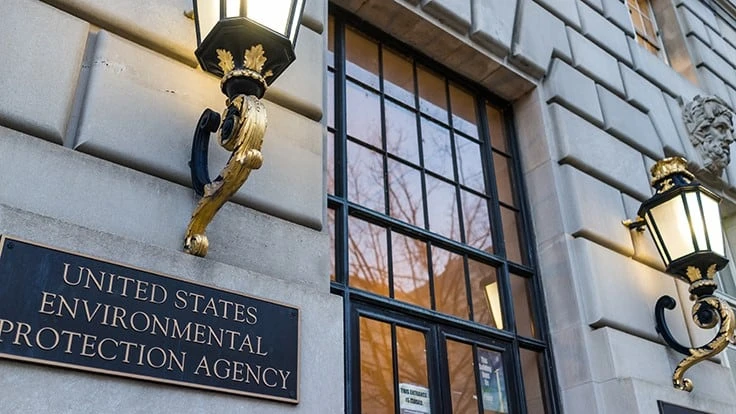
Photo courtesy Adobe Stock
U.S. Environmental Protection Agency (EPA) Administrator Michael S. Regan has issued a memorandum calling for the agency to create a council on per- and polyfluoroalkyl substances (PFAS). The council will be charged with studying the chemicals and reducing their potential risks.
“Coming from North Carolina, I’ve seen first-hand how devastating these chemicals can be for communities and the need for strong EPA leadership,” Regan says. He adds that the council “will identify pragmatic approaches that deliver critical protections to the American public. As one of my top priorities as administrator, EPA will prioritize partnerships and collaboration with our federal, state, tribal and local partners, and engage the public about the risk associated with these chemicals.”
Regan has asked Radhika Fox, principal deputy assistant administrator in the Office of Water, and Deb Szaro, acting regional administrator in Region 1, in New England, to convene and lead the EPA Council on PFAS. The EPA says most of the council will be comprised of senior EPA career officials.
“I’m honored to co-chair the EPA Council on PFAS and to work collaboratively with colleagues across our national program offices and our regions to forge meaningful and sustained progress on PFAS,” Fox says. “By taking a whole of EPA approach, the council will accelerate scientific work, regulatory action and voluntary approaches to address PFAS contamination and better protect the health of all Americans.”
To address these challenges, Regan is directing the EPA Council on PFAS (ECP) to perform a number of actions:
- The council will develop “PFAS 2021-2025 – Safeguarding America’s Waters, Air and Land,” a multiyear strategy to deliver critical public health protections to the American public. To develop the strategy, the ECP will review ongoing actions, propose any necessary modifications and identify new strategies and priorities. The ECP will make initial recommendations within 100 days of its establishment.
- The ECP will continue close interagency coordination on regional specific and cross-media issues to assist states, tribes and local communities faced with significant and complex PFAS challenges.
- The council will work with all national program offices and regions to maximize the impact of EPA’s funding and financing programs and leverage federal and state funds to support cleanup of PFAS pollution, particularly in underserved communities.
- The ECP will expand engagement opportunities with federal, state and tribal partners to ensure consistent communications, exchange information and identify collaborative solutions.
The council to examine PFAS is based on the 2019 EPA PFAS Action Plan. Developed by EPA career staff, the plan identifies an agenda and actions that have yet to be realized in managing the chemicals.
The ECP’s work will build on steps the Biden-Harris administration has taken to address these chemicals, including pulling down and updating a perfluorobutanesulfonic acid (PFBS) toxicity assessment that had been politically compromised and issued a new assessment backed by career scientists. EPA also has taken action to begin to develop a national primary drinking water regulation, to collect new data critically needed to improve EPA’s understanding of 29 PFAS and to solicit data on the presence and treatment of PFAS in wastewater discharges.
Latest from Waste Today
- Struggling with excess wood debris?
- More of what the world needs, less of what it doesn’t
- Gaeta Recycling: Driving efficiency and sustainability with SENNEBOGEN material handlers
- Enhance mobility using Sebright Products Portable Compactor Solutions
- Drive operational efficiency with Sebright Products Oil Filter Recycler
- Keep your drivers on the road with Sebright Products Container Dogs
- Casella Waste Systems acquires William Gerber Inc.
- California wildfire debris cleanup on track to be completed by mid-summer





